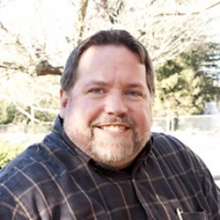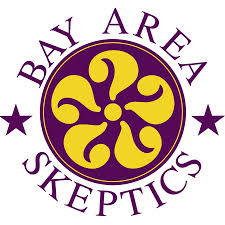Welcome to La Peña! Promoting social justice & intercultural understanding through the arts since 1975.

- This event has passed.
Bay Area Skeptics Talk: “Sh*t Students Say: Chem trails, hollow earths, and other strange ideas about the planet” by Steve Newton
October 10, 2019 @ 7:30 pm - 9:00 pm
Free Event / Donations Encouraged
This critical thinking-focused organization meets Every Second Thursday of the month with a different topic and guest speaker for every conversational meeting.
THIS MONTH’S TOPIC: “Sh*t Students Say: Chem trails, hollow earths, and other strange ideas about the planet” by Steve Newton
From rejection of evolution and plate tectonics to questions about chem trails and crystal energy, many introductory science students come to class with strange ideas about the earth. Can animals predict earthquakes? Is the Earth hollow? Is climate change a hoax? Spoiler alert: no. Steven Newton draws from over twenty years of undergraduate geoscience education to illustrate how mistaken views show up in geoscience classes—and what all educators can do to promote good science.
ABOUT THE SPEAKER:
 After a long stint as a professional gambler, alpaca farmer, and yogi—a career which ended abruptly in what has become known in Ecuador as the ‘Night of the Supple Alpaca’– Steven Newton decided to re-invent himself as an intrepid geologist devoted to defending science education at the National Center for Science Education. Today, from his lair as the Ignatius J. Reilly Chair of Geology at College of Marin, Newton attempts to amuse confounded millennials with a combination of science memes, obscure references to events in Tudor-Stuart Britain, and pontifications about which cafes have the best coffee. Frequently voiced student concerns asking ‘Isn’t this supposed to be a geology class?’ are brushed aside with musings about the details of early Star Wars scripts.
After a long stint as a professional gambler, alpaca farmer, and yogi—a career which ended abruptly in what has become known in Ecuador as the ‘Night of the Supple Alpaca’– Steven Newton decided to re-invent himself as an intrepid geologist devoted to defending science education at the National Center for Science Education. Today, from his lair as the Ignatius J. Reilly Chair of Geology at College of Marin, Newton attempts to amuse confounded millennials with a combination of science memes, obscure references to events in Tudor-Stuart Britain, and pontifications about which cafes have the best coffee. Frequently voiced student concerns asking ‘Isn’t this supposed to be a geology class?’ are brushed aside with musings about the details of early Star Wars scripts.
ABOUT BAY AREA SKEPTICS

Bay Area Skeptics was founded in June 1982 as the first “local interest group” inspired by the Center for Scientific Investigation of Claims of the Paranormal (CSICOP), now known as the Center for Scientific Inquiry (CSI). Although they have overlapping interests with CSI, BAS is independent of all other groups.
The organization encourages critical thinking and accuracy in the media and in our schools. They encourage rational thought and critical thinking through the use of scientific methods. They are particularly interested in such topics as claims of the paranormal, pseudoscience, and untested or poorly tested medical and psychotherapeutic practices.